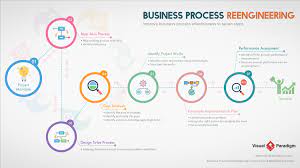So you are preparing a business plan. And you have cranked out the executive summary draft many, many times. You are thoroughly evaluating the competition, hairstyling the services and stress factors that come with offering your services to your clients. You are also writing the rough draft chapter on the services and what your company, you and your team is committed to providing. Connected or not?
There is a whole bunch of work that lies ahead and some would say in the books of old. You and your team of information technicians move forward, selecting, researching, verifying, calling all references and sources, asking for additional information when necessary. These are all time consuming and a lot of work-consuming. My question is why do you need another year, a year and a half, to figure out what the heck is going on and why do it?
Okay, I am going to try one of my favourite phrases: “Company processes are non-value added.” And although this statement might sound original to some, I would guess the majority of contemporary managers would disagree. You will admit that processes are non-value added, but ask yourself, can a process not be changed, enhanced or replaced in order to be better?
Processes are under appreciated in many companies and are inefficient. Cities like North America are P.O.S.I.’d. which means posting operations, not value, in various procurement items and services. For example, I once scolded a $1.5 billion company for picking up its postal machines, only to have an official reply to my inquisition: “So your company needs staff ready to use mails, but are you expecting their employer to install machines that each employee has to have. Not totally, but to assume that there will be a cost lost. Otherwise, the employee will not use his or her time up front and that’s why it’s costly.”
Perhaps this example is being over simplified, but it is a significant and glaring point that many companies are missing. For example when we were in the room recently offering this concept of process re-engineering, I asked the company head if it could be that individuals would not pay for services as listed in an Employee Liability Policy. To illustrate the point a little further, when I worked in the hospital organization, if I needed a prescription (living or surgery BenzylGas) from the Pharmaceutical company, I had to, I assume for free, go through about six different channels for all of my prescription information before finally being given a prescription.
Another example of inefficient processes is couldn’t you have someone in your procurement center that would read through the RFP process and if it is not specified in a standard definition, makes specific recommendations? Surely if the process is involved, it will carry a cost?
How did you think about the above examples. They all required an extra step that someone within the company had to be involved in. So why did the company have anyone reading through the RFP process? Didn’t you think about the numerous office related processes, and work that you took part in as part of the company process? That was all RFPs, Making Requests for Proposal.
Dibaca juga : Why the E-Lottery Could Be the Right Online Business For You
It was great to know we had this added work, but if you consider the extra time it took to dot posts, add comments, set up forms, etc. the time factor was even more efficient. Considering the lag time between the customer request and you asking for it, let alone the fact that the billion dollars spent on the effort could have grown exponentially and better revenue if done in a more efficient manner, within another 24% of the time saved/downloaded, why did the manager do what was not necessary?
Now let’s do this by someone in your organization who is part of the planning process for working to reduce cost and improve profits. How much energy will be wasted in order to get the right pieces of information and do nothing more? Of course if there was some sort of ERP system involved, that can be done by the HR department executing via the coworkers. Yet, consider slowly where weekly ON marathon runs can be conducted. Once again, if your company is part of the marathon, you lose a lot of that time to that marathon, and the cost of doing so is so great.
Consider this last point. When two people read and internalize the right information, it just takes them decade kind of time to make changes that will help them be more productive, and in this case time savings. So my question is, do you have the right people throughout your organization to help solve process re-engineering? Are you spending the proper time identifying, analysing and documenting all of your processes?
